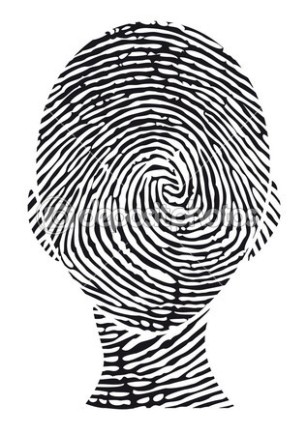Having been inspired by this great post by Life In a Bind, I thought I’d take a bit of a reflection on a great book, and on the concept of memories.
The two are inextricable for me right now because I’m reading Joshua Foer’s bestseller, “Moonwalking with Einstein.” This book is incredible. Just really clean, spot-on journalism on a compelling topic – memory. The book charts the journey of the author from someone with average (i.e. pretty awful) memory who is interested in the topic, through his learning mnemonism (memory training), up to his competing in the USA Memory Championship.
Among all the fascinating information about memory in the book is the following passage which really struck home for me.
- ‘In Plato’s Phaedrus, Socrates describes how the Egyptian god Theuth, inventor of writing, came to the king of Egypt and offered to bestow his wonderful invention upon the Egyptian people. “Here is a branch of learning that will… improve their memories,” Theuth said to the king. But the king was reluctant to accept the gift. “If men learn this, it will implant forgetfulness in their souls,” he told the god. “They will cease to exercise their memory and become forgetful; they will rely on that which is written, calling things to remembrance no longer from within themselves, but by means of external marks. … It is no true wisdom that you offer, but only its semblance, for by telling them of many things without teaching them anything, you will make them seem to know much, while for the most part they will know nothing.’
Yikes. A bit too close to home? In an age when GPS tells me where to go, my phone tells me contacts’ information, my calendar tells me birthdays or appointments, and Google tells me – well – anything and everything, why on earth would I waste headspace remembering? Yet this passage points out that to truly know something, one must remember it. If information can be said to be externalized (written down or recorded) or internalized (stored in the neurons that make up and control our very consciousness), then it’s clear which kind is more powerful, more meaningful when it comes to the information that makes me who I am.
Consider two widely accepted facts:
1) We think therefore we are. When we say “I” we basically mean our memories. Our memories shape both physical and mental reactions, choices, events and, at our core, self. They make us who we are because we learn (or do not learn) from them. We keep the ones our minds consider essential to ourselves, and, for the most part, discard the more frivolous or irrelevant ones.
2) Our memories are faulty and/or at the very least, prone to some extreme negative thinking. They are riddled with all kinds of patterns and tendencies that mean you will always remember the worst you ever felt, the worst thing you ever saw, the worst moment of your life, etc. The best? Not nearly as likely. As numerous studies have confirmed, when it comes to “memorable,” the more lewd, awful or violent, the better. Mary Carruthers notes that memorization techniques have, for thousands of years, relied on grotesque and disturbing images to make things stick because that’s how easily the memory gravitates to things that stand out as objectionable or horrific to the mind.
Now back to us and our BPD.
If you struggle with BPD, depression, anxiety or all of the above, you know that your memory is even more prone than the average human memory to focus on the bad and inadvertently filter out the good. For me, often when a good memory arises or is being made, I just breeze over it as, “that’s nice, ANYway, moving on…” – or worse, I’ll do the classic, “well this is nice but of course it’s going to go sour soon, just like last time…” – thereby reinforcing my mind’s iron grip on bad memories over positive experiences.
This is why if you believe your memories make you everything you are today, you couldn’t be more wrong. Your memories need your active help to remain balanced and factual. So I’m going to start doing some work to make and retain positive memories. I know lots of people keep a gratitude journal, and maybe that’s where I’ll start. But more than that, I want to internalize the things that make me hopeful, happy, encouraged and inspired – because I know I certainly don’t need help remembering the opposite events. It makes it a lot more palatable to me (and a lot less hokey) to think of this as memory work rather than “positive thinking” or some other fluffy concept that I don’t really feel comfortable clinging to. I really want to know the things I’m happy about and carry them within me, rather than just be reminded of them from time to time as I drag around my bulging suitcases of traumatic memories. Wish me luck!
Cat xxxx


